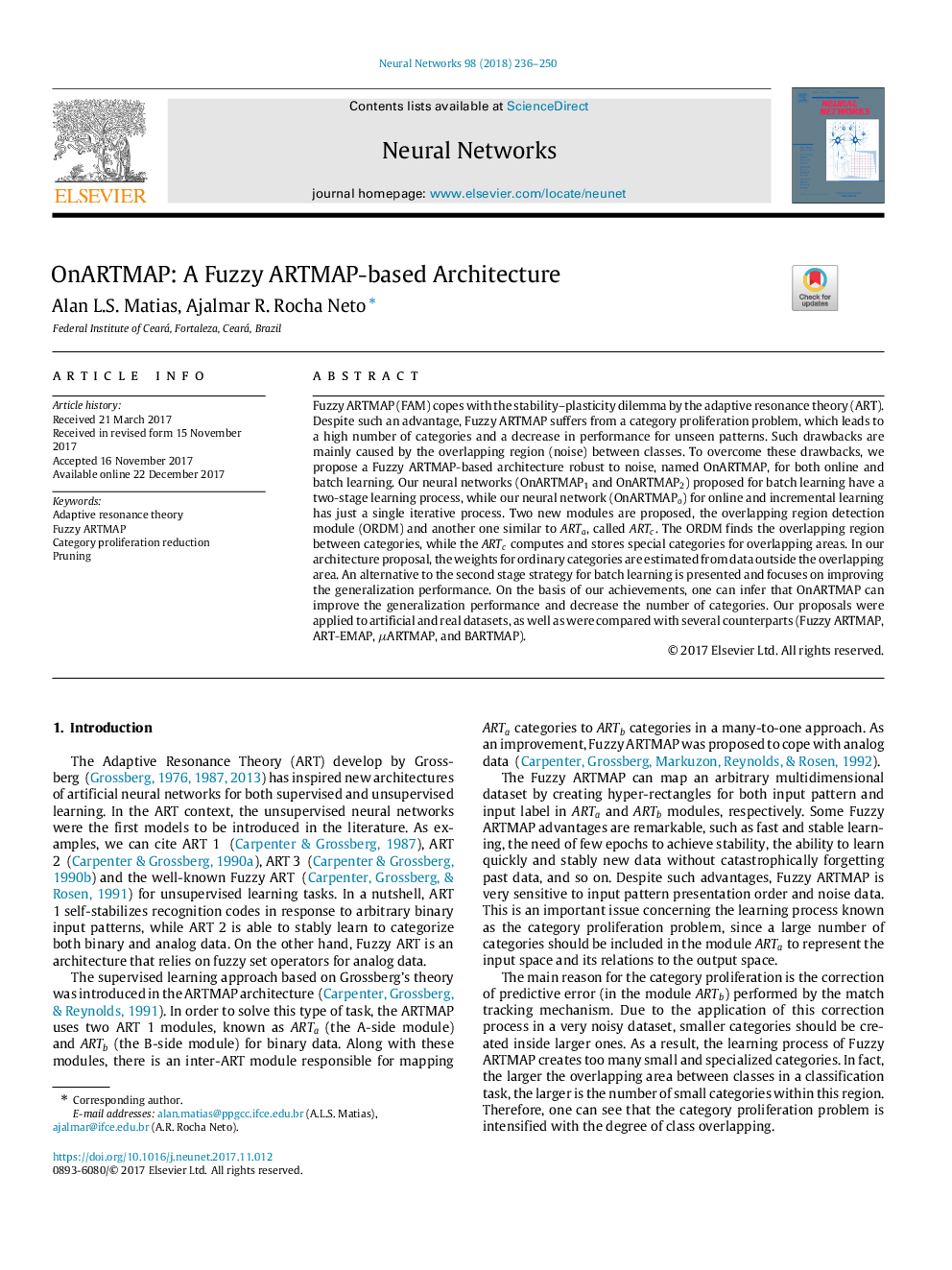| Article ID | Journal | Published Year | Pages | File Type |
|---|---|---|---|---|
| 6863114 | Neural Networks | 2018 | 15 Pages |
Abstract
Fuzzy ARTMAP (FAM) copes with the stability-plasticity dilemma by the adaptive resonance theory (ART). Despite such an advantage, Fuzzy ARTMAP suffers from a category proliferation problem, which leads to a high number of categories and a decrease in performance for unseen patterns. Such drawbacks are mainly caused by the overlapping region (noise) between classes. To overcome these drawbacks, we propose a Fuzzy ARTMAP-based architecture robust to noise, named OnARTMAP, for both online and batch learning. Our neural networks (OnARTMAP1 and OnARTMAP2) proposed for batch learning have a two-stage learning process, while our neural network (OnARTMAPo) for online and incremental learning has just a single iterative process. Two new modules are proposed, the overlapping region detection module (ORDM) and another one similar to ARTa, called ARTc. The ORDM finds the overlapping region between categories, while the ARTc computes and stores special categories for overlapping areas. In our architecture proposal, the weights for ordinary categories are estimated from data outside the overlapping area. An alternative to the second stage strategy for batch learning is presented and focuses on improving the generalization performance. On the basis of our achievements, one can infer that OnARTMAP can improve the generalization performance and decrease the number of categories. Our proposals were applied to artificial and real datasets, as well as were compared with several counterparts (Fuzzy ARTMAP, ART-EMAP, μARTMAP, and BARTMAP).
Related Topics
Physical Sciences and Engineering
Computer Science
Artificial Intelligence
Authors
Alan L.S. Matias, Ajalmar R. Rocha Neto,
